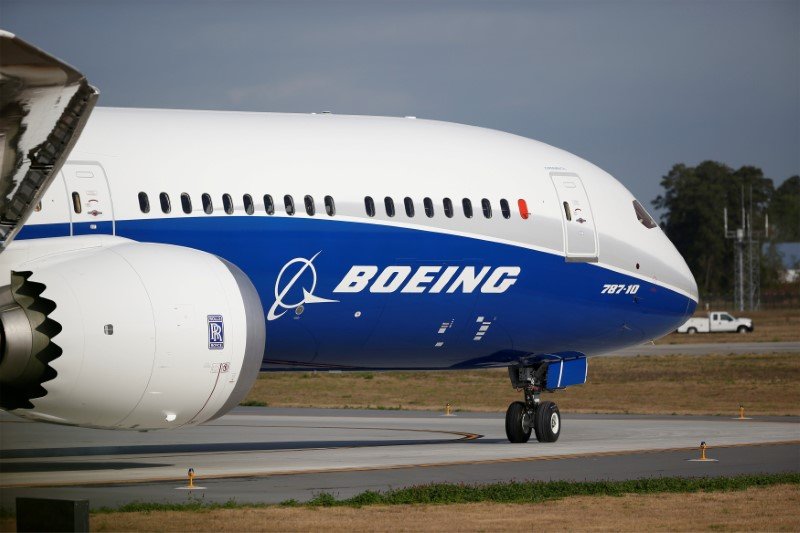Boeing’s Tariff Concerns
July 17, 2018 | Expert Insights

American aerospace and defense giant Boeing is concerned that the trade dispute between the world’s two biggest economies will affect global economic growth.
Background
The United States and China are two of the largest economies in the world. Both countries consider the other partners in trade and adversaries in geopolitics. Diplomatic relations between US and China were first established in 1844 with the Treaty of Wanghia. This agreement allowed the US to trade in Chinese ports.
President Trump is known to have a protectionist outlook on trade. On his campaign trail, he promised tariffs against countries such as China, with whom the US has a $337 billion trade surplus. He has blamed China for loss of jobs. He also criticized “bad” trade deals and “unfair trade practices” against America. He said that other countries were "dumping vast amounts of steel all over the United States, which essentially is killing our steelworkers and steel companies.”
In recent months, experts have begun sounding the alarm about an impending trade war between US and China. These fears solidified in March, when Trump announced global import tariffs of 25% on steel and 10% on aluminium. The President cited “national security” in order to circumvent WTO commitments. Since then, tensions have escalated. The US has imposed tariffs worth over $150 billion; Beijing responded with $50 billion worth of tariffs.
During trade talks in Beijing this May, US officials reportedly called for China to cut the trade deficit by $200 billion. However, a later round of trade talks that ended on a positive note, led people to believe that tensions would de-escalate. Treasury Secretary Steve Mnuchin stated that the two nations would be putting the trade war on hold.
Analysis
Dennis Muilenberg, CEO of the Boeing Company, has expressed concerns about the potential damage of the simmering US-China trade row. His concern is that tariffs will push up costs for aircraft manufacturers. "Aerospace thrives on free and open trade, and drives economic benefits globally. We are concerned it could affect supply chain costs - but those supply chains are flowing in both directions [between China and the US], it is an intricate network around the world." he said. Boeing has found itself at the center of the dispute, as the aerospace sector makes up the largest single trade surplus item in the US economy.
Muilenberg spoke to reports ahead of the Farnborough International Airshow, due to begin on Monday stating that “Our voice is being heard. We are engaged with the US government and with the Chinese government. I’m hopeful we’ll come to a good resolution.” The Farnborough Airshow is a week-long, biennial event that combines a major trade exhibition for the aerospace and defense industries with a public airshow.
This month, the US imposed tariffs of $34 billion on Chinese goods. In response, China introduced equivalent tariffs on US imports, such as pork and soya beans. The Federal Reserve noted in June that US businesses were already putting investment on hold as a result of the tit-for-tat tariff war. While Boeing has not felt any impact of any tariffs on its business, its executives are meeting regularly with high-ranking administration officials. It is also preparing for increased costs within its supply chain. “The discussion right now is proposed tariffs. So in terms of actual implementation and things that are impacting us, we haven’t seen a material impact yet,” Muilenburg stated.
Boeing employs more than 140,000 people, most of whom are based in the US. It also happens to be the largest foreign customer of China's aviation manufacturing industry, and the company has forecast that China will become Boeing’s biggest customer within 20 years.
According to Muilenberg, who has struck a close relationship with US President Donald Trump, both USA and China understand the value of aerospace to their economies. USA relies on the sector for thousands of valuable export jobs, while China needs planes to boost its transport capacity. He dismissed suggestions that Boeing’s European rival Airbus might take advantage of the trade row. “You are not going to see sudden shifts in orders or delivery profiles,” he said. “That all said, we need to find productive trade solutions. That’s why we’re engaged with both governments.” Nonetheless, Boeing has had no orders from Chinese airlines yet this year, which it said were attributed to the fact that China had already placed sizeable orders over the past two years.
Assessment
Our assessment is that if the dispute continues, the wider global economy might be affected. We feel that this will impact airline passenger and freight traffic, ultimately resulting in a curbing demand for aircraft. We believe that there are several tough challenges to be resolved in global trade, including Britain’s exit from the European Union.








Comments